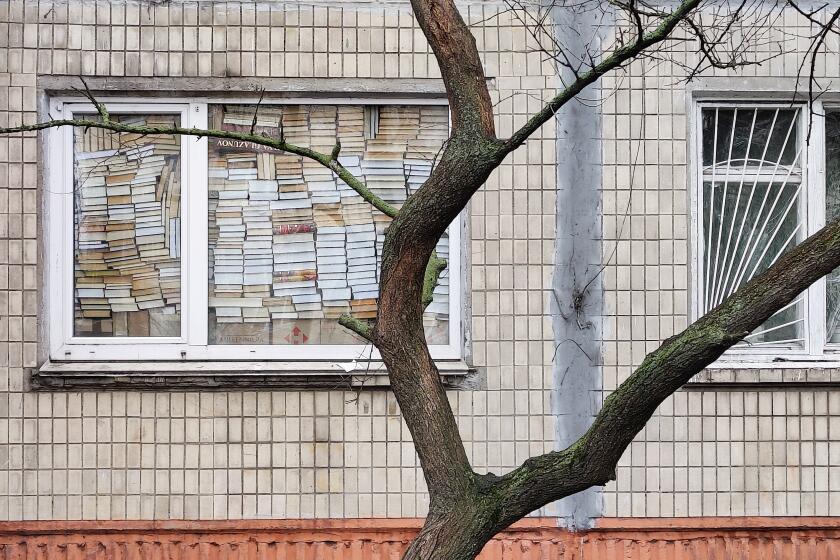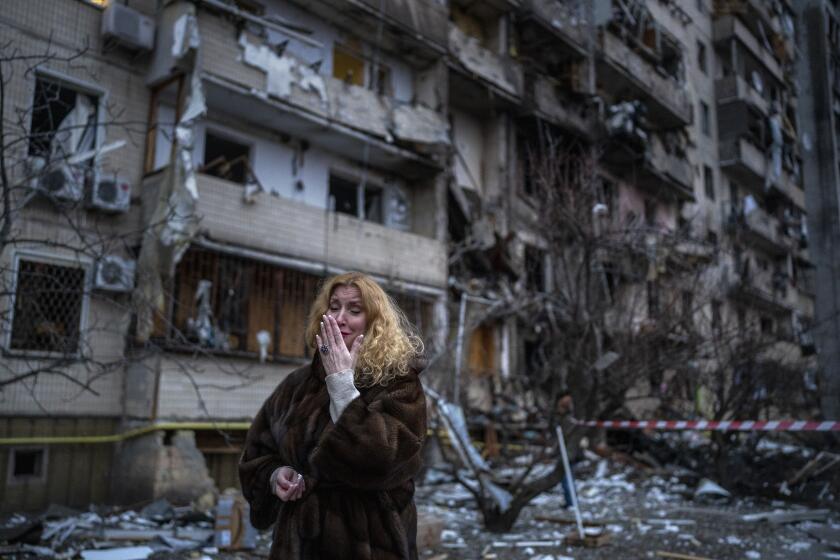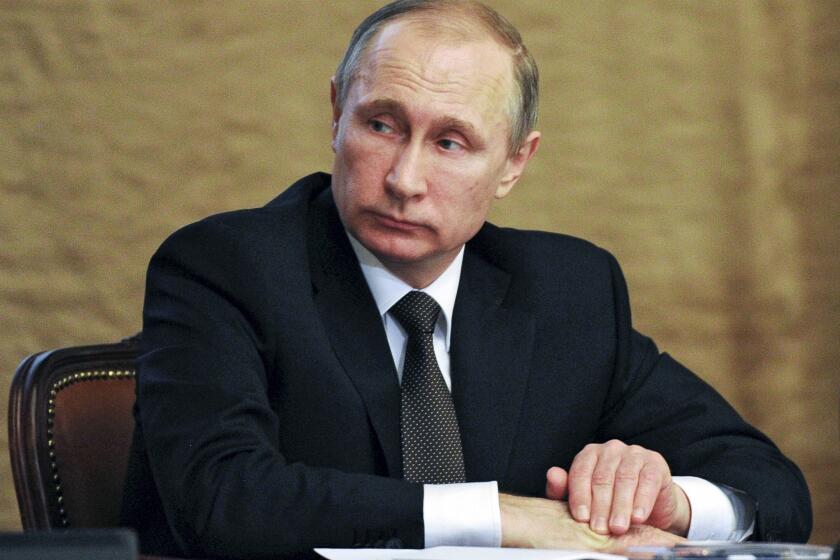12 essential books on Ukraine, Russia and Putin
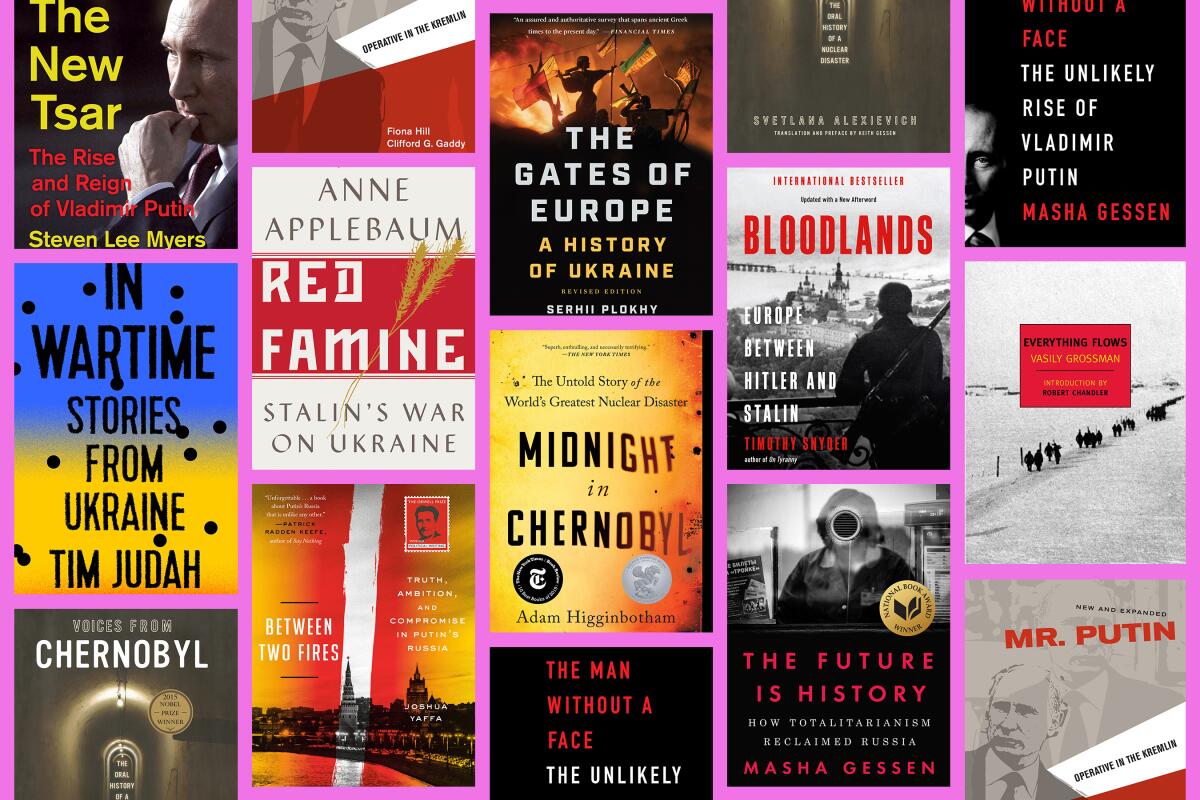
- Share via
On the Shelf
A Ukraine invasion reading list
If you buy books linked on our site, The Times may earn a commission from Bookshop.org, whose fees support independent bookstores.
If you are an American reader horrified by Russia’s invasion of Ukraine, reaching for a book to explain it all seems like the logical next step. Independent bookstores confirm that logic, reporting a run on titles about Ukraine and Russia. And in the two major library systems I patronize, every title on Ukraine, Russia and Putin I have sought in the last week is checked out, with a lengthy wait for both print and ebook versions. Publishing has yet to offer new books on the Ukraine-Russia struggle, though that is sure to change.
Fortunately, there’s a wealth of recently published, deeply informed titles on the intertwined history of these nations. All you have to do is find them. Here are some of the most noteworthy:
UKRAINE
The Gates of Europe: A History of Ukraine
By Serheii Plokhy
Basic Books: 448 pages, $20
This readable, detailed and authoritative study by a Harvard professor of Ukrainian history, issued in a revised paperback edition in 2021, is an essential aid in understanding Ukraine’s rich and complicated past. Plokhy covers 2,000 years of Ukrainian history as waves of invaders fought and died grasping for the region’s strategic advantages and natural riches. Those claimants include the Kyivan Rus’ (Vikings that both Ukrainians and Russians reference as ancestors), the Byzantine Empire, the Ottomans, the Mongols, Poles and Lithuanians, Russian tsars, Germans, the Soviet Union and now Vladimir Putin’s Russia. The author expertly analyzes the religious conflicts, nationalism and antisemitism that have shaped and stained the country’s past. And he vividly conveys Ukrainians’ toughness, courage and ruthlessness — by now it must be embedded in their genes — and their long fight to obtain independence from Russia.
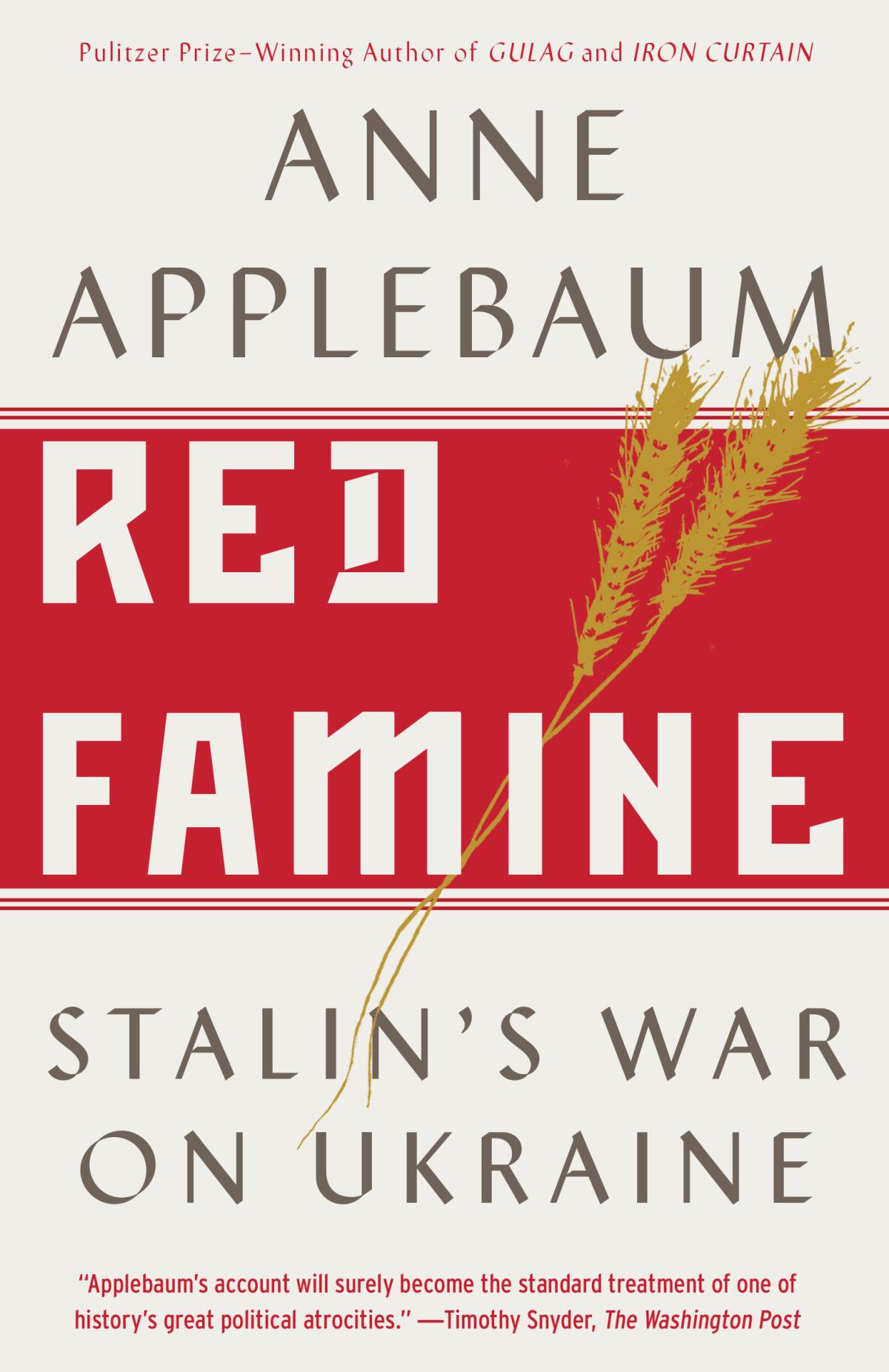
Red Famine: Stalin’s War on Ukraine
By Anne Applebaum
Anchor: 608 pages, $18
The winner of the Pulitzer Prize for “Gulag: A History,” Applebaum has deep connections to middle Europe; she lives in Poland, Ukraine’s near neighbor, and is married to a Polish politician. This 2017 book tells the horrific story of Ukraine’s treatment at the hands of Stalin in the 1930s, when the dictator drove its peasants off their farms and into collectives. The result was a catastrophic famine, the most lethal in European history, in which 3 million Ukrainians died.
Everything Flows
By Vasily Grossman
New York Review Books: 272 pages, $18
Grossman was an acclaimed journalist and novelist who ran afoul of Stalin’s regime. His last novel features characters who step forward to confess the terrible things they did under Stalin, things that seemed rational under the circumstances. One woman’s account re-creates the Ukrainian famine in horrifying detail, making it clear that Stalin’s actions constitute a deliberate and successful genocide.
The author of “Reading Lolita in Tehran” talks about her far-ranging new book, “Read Dangerously,” about the power of books to fight authoritarians.
Bloodlands: Europe Between Hitler and Stalin
By Timothy Snyder
Basic Books: 560 pages, $23
Snyder, a Yale history professor, has published six books that touch on Ukraine and Russia (the latest is 2019’s “The Road to Unfreedom”). His 2010 prizewinning history, “Bloodlands,” reexamines the mass killings perpetrated by both Hitler and Stalin in middle Europe between 1930 and 1945, when as many as 14 million noncombatants perished through murder, starvation and imprisonment in death camps — many of them Ukrainians.
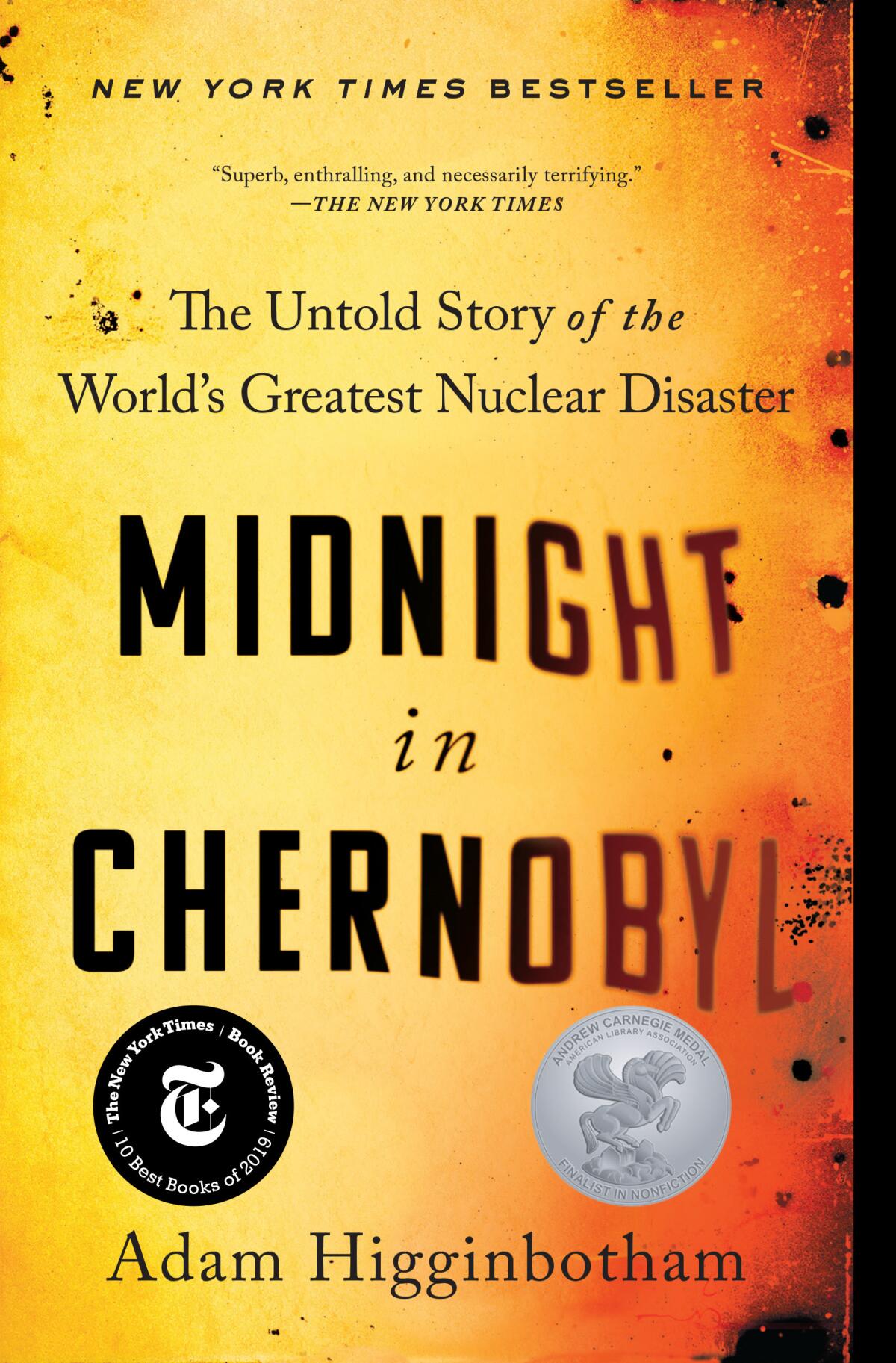
Midnight in Chernobyl
By Adam Higginbotham
Simon & Schuster: 560 pages, $20
As Russia and Ukraine fight in the vicinity of Ukraine’s four nuclear plants, books on Chernobyl have a new sense of urgency. Higginbotham’s critically acclaimed 2019 account of the 1986 Chernobyl nuclear disaster reconstructs events on a nearly minute-by-minute timeline.
Voices From Chernobyl: The Oral History of a Nuclear Disaster
By Svetlana Alexievich
Dalkey Archive: 240 pages, $20
The Belarusian journalist, genius oral historian and winner of the 2015 Nobel Prize recounts the story of the Chernobyl disaster in kaleidoscopic retrospect via almost 500 interviews with those who lived through it.
In Wartime: Voices From Ukraine
By Tim Judah
Tim Duggan Books: 290 pages, $12 (Kindle)
This excellent 2015 book by the Economist’s Balkans correspondent (currently reporting from Kiev) moves forward from Russia’s 2014 invasion and annexation of Crimea through the Ukrainian civil war that followed to try to understand the history that motivates all sides, including Russians in eastern Ukraine who see Putin as a savior and western Ukrainians determined to fight the Russians at all costs. In Ukraine, “what you believe today depends on what you believe about the past,” writes Judah. A prescient book that combines vivid profiles of Ukrainians with lucid history and on-the-ground journalism.
Photojournalism scholar Lauren Walsh discusses her new book, ‘Through the Lens,’ and the challenges of photographing conflicts ranging from BLM to Ukraine.
PUTIN’S RUSSIA
The Man Without a Face
By Masha Gessen
Riverhead: 352 pages, $18
One of the most astonishing things about this book is that the steel-nerved journalist, now a New Yorker writer, was still living in Russia when it was published in 2012. Gessen digs into Putin’s working-class childhood, his career as a KGB agent, his schooling in politics as a St. Petersburg government official and, after his rise to ruler of Russia, his systematic construction of an authoritarian system that held sway over government, business and the media, harassing, imprisoning and even murdering those who stood in his way.
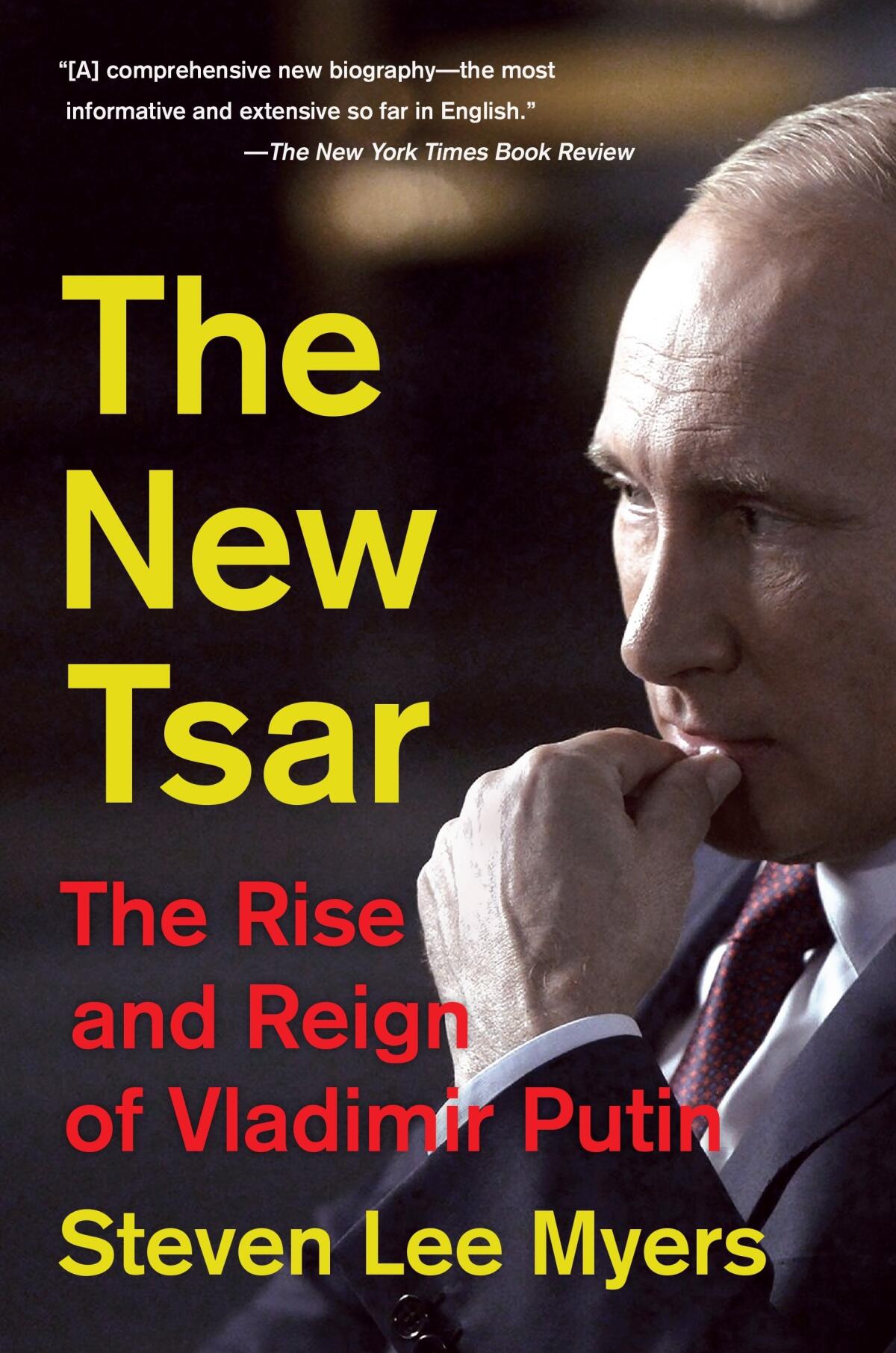
The New Tsar: The Rise and Reign of Vladimir Putin
By Steven Lee Myers
Vintage: 592 pages, $19
Myers, former Moscow bureau chief for the New York Times, published this meticulously reported and researched biography in 2015. His premise is that what drives Putin is the need for control, which is why the messy processes of democracy threaten and enrage him. The book ends with Russia’s 2014 invasion of the Crimea, a first step in Putin’s drive to eventually reclaim Ukraine.
Mr. Putin: Operative in the Kremlin
By Fiona Hill and Clifford Gaddy
Brookings: 543 pages, $34
An expert on Russia who served on the National Security Council during the Trump administration (and famously testified during his first impeachment trial), Hill co-authored this chilling psychological portrait of Putin as an extortionist, exploiter and manipulator who demands absolute loyalty and trusts only himself.
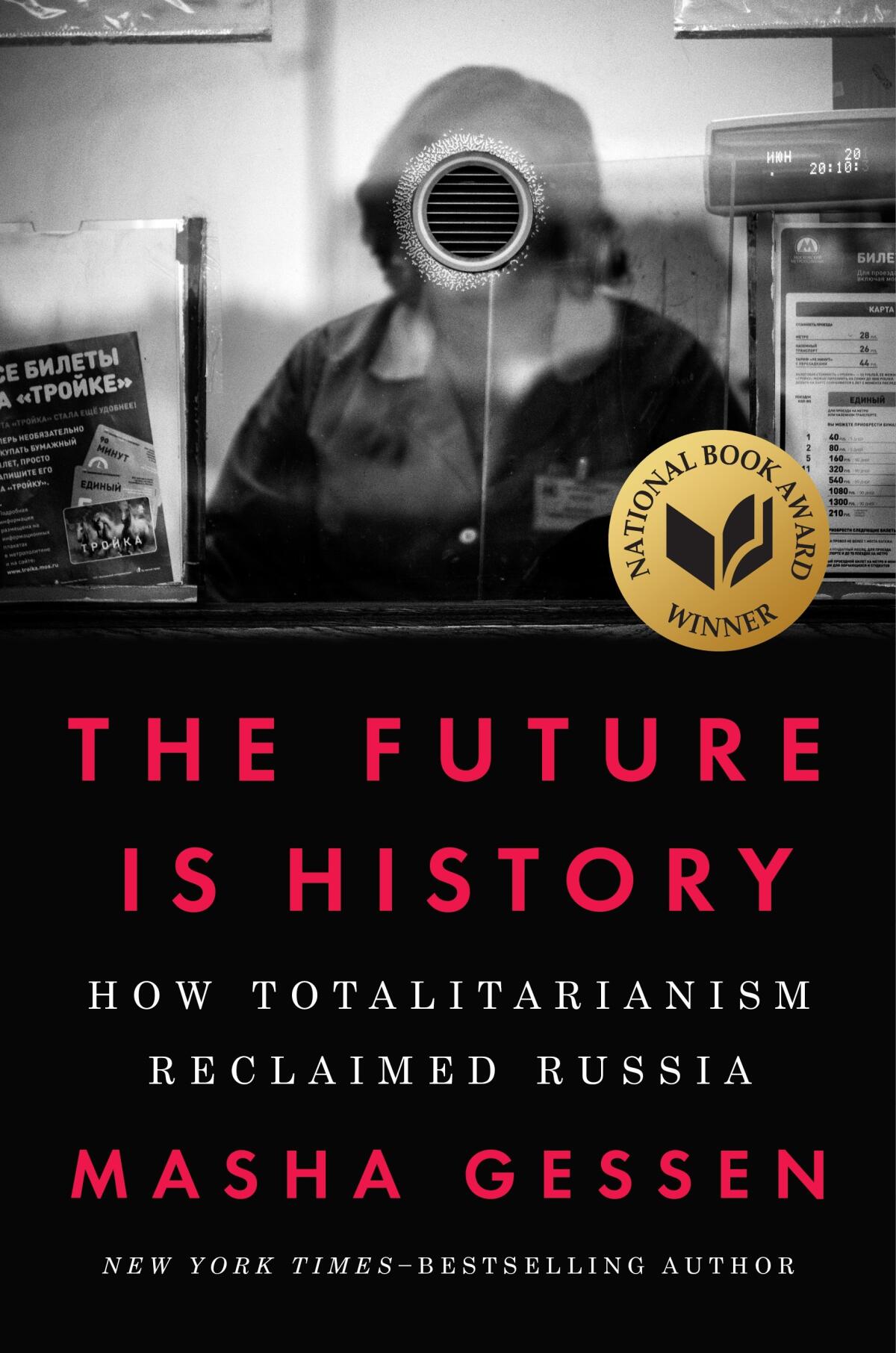
The Future Is History: How Totalitarianism Reclaimed Russia
By Masha Gessen
Riverhead: 544 pages, $18
Gessen left Russia in 2013 because of its repression of gay families and critical journalists. In this brilliant and sobering account, published in 2017, the author follows four young Russians who spent most of their lives under Putin as he dismantled governing institutions essential to a free and just society, seized control of major businesses, suppressed the independent press and consolidated his wealth and his power. Written with insight and mordant humor, it’s a bleak and frightening portrait of a country in thrall to a ruthless dictator.
Russia flies a different flag now, but its song remains the same — the tune of the Russian Federation anthem is the old Soviet Union’s, unchanged.
Between Two Fires: Truth, Ambition, and Compromise in Putin’s Russia
By Joshua Yaffa
Crown: 384 pages, $17
This unsettling 2021 book by a Moscow correspondent for the New Yorker gathers profiles of Russians who have ceded some of their ethics and freedoms to Putin. Foremost is Konstantin Ernst, a brilliant TV producer and intellectual who transformed and burnished Putin’s video image, attending high-level Kremlin meetings while running a national news channel broadcasting pro-Putin news and entertainment with a nostalgic view of Russia’s Stalinist past. In these portraits of talented people whose ambitions are warped by Putin’s will, there’s little to suggest any public uprising against Putin because of the war, though that could change as Russia’s elites lose the Western privileges that have become staples of their lives.
More to Read
Sign up for our Book Club newsletter
Get the latest news, events and more from the Los Angeles Times Book Club, and help us get L.A. reading and talking.
You may occasionally receive promotional content from the Los Angeles Times.
